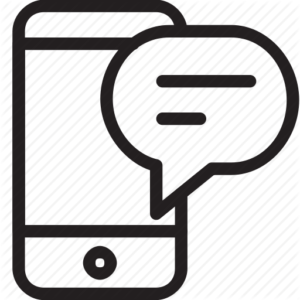 “Receive the Holy Spirit” (Jn 20:22)
“Receive the Holy Spirit” (Jn 20:22)
In the recent years I have been travelling across continents and living in different cultural contexts. The question, “Where do you come from,” has become so difficult for me to answer. I am grateful to God for the variety of cross-cultural experiences that I have had, and I feel I am a citizen of the world. One thing that has made this possible, easy, and enjoyable, is the fact that I am a Christian, and a Catholic! Today we celebrate the birthday of this Church – the universal church. The liturgy of the Word on this day suggests the theme of unity of the Church. Our reflection focuses on three possible meanings of this feast.
The Holy Spirit is the Spirit of the Risen Lord: The evangelist Luke considers the event of the resurrection (Easter) and […]
Author: selvam
Sermon for Cycle A – 5th Sunday of Easter Homily

I am the Way, the Truth and the Life (Jn 14:1-12)
Service at Table and Service of the Word (Acts 6:1-7)
In the first reading of today we have an interesting story of conflict resolution in the early church. Earlier in the Acts of the Apostles we read (Acts 4:32-35):
The whole group of believers was united, heart and soul; no one claimed private ownership of any possessions, as everything they owned was held in common. The apostles continued to testify to the resurrection of the Lord Jesus with great power, and they were all accorded great respect. None of their members was ever in want, as all those who owned land or houses would sell them, and bring the money from the sale of them, to present it to the apostles; it was then distributed […]
Covid-19 tests self-learning skills of students today
 Covid-19 tests self-learning skills of students today
Covid-19 tests self-learning skills of students today
Sunday Nation, 26 April 2020
Covid-19 pandemic has challenged the status quo of the contemporary society on several fronts.
Its impact has been felt across almost every aspect of life, including healthcare services, economics, entertainment industry and sports, work and family life, and in religious and educational practices.
Amidst these global disruptions, the winners have been the contemporary twins, Information Technology (IT) and internet.
On the education front, the immediate focus has been on providing an emergency response, to keep the learning going remotely via the internet.
If our investment of resources right now just targets a stop gap measure, we might miss an opportunity to make a systemic change to education.
Covid-19 has thrust us by force, as it were, into how education ought to be carried out in the […]
My contribution to Sunday Nation, Kenya
{{unknown}}![]()
26 April 2020
Covid-19 tests self-learning skills of students today
Covid-19 pandemic has challenged the status quo of the contemporary society on several fronts. Its impact has been felt across almost every aspect of life, including healthcare services, economics, entertainment industry and sports, work and family life, and in religious and educational practices. Amidst these global disruptions, the winners have been the contemporary twins, Information Technology (IT) and internet.
On the education front, the immediate focus has been on providing an emergency response, to keep the learning going remotely via the internet. If our investment of resources right now just targets a stop gap measure, we might miss an opportunity to make a systemic change to education. Covid-19 has thrust us by force, as it were, into how education ought to be […]
Selvam’s Guide to Online Counselling/Therapy
{{unknown}} How to go about Online Counselling?
How to go about Online Counselling?
Some Practical Guidelines
Sahaya G. Selvam
Background
The situation created by COVID-19 is difficult for most people. Internet and online services have filled the gap in social distancing. Online teaching and learning have become the new norm.
COVID-19 induced lockdown might create increased need for psychological help for some people, while reducing the possibility for physical sessions. Therefore, there could be more regulated possibility for online counselling and therapy sessions.
The guidelines here refer to some practical hints on how to go about online counselling sessions. Remember, all regular norms of ethics and code of conduct proper to counselling and therapy will apply: confidentiality being a primary concern. These guidelines are not meant to offer alternative code of conduct to any existing norms offered by governments or […]